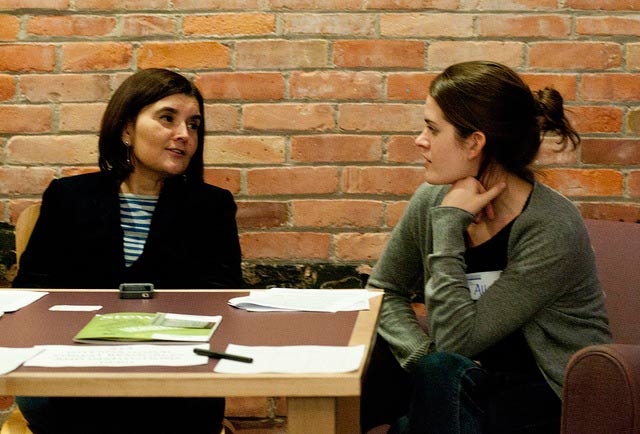- An increased understanding of your own language.
For our purposes, let’s say that you know English and want to know Spanish while your partner knows Spanish and wants to learn English. In helping your partner learn English, you will inevitably increase your understanding of the nuances of the language. Now, you may say that you have really nothing to gain from gaining a heightened awareness of the English language since you are already fluent in it. All I will say in response to that sentiment is to examine the quality of your English writing before and after helping someone learn English. You will be shocked by how big of an improvement you see. - An increased ability to struggle
Learning languages is one of those skills that I have nicknamed “struggle” skills. I call them that because they are so immensely difficult to learn, so taxing on one’s mental endurance. You most likely do not call these skills “struggle” skills, but you can probably list a few more that fall under the same category: learning to play an instrument; learning a computer programming language; be able to run a marathon. These are the skills that are always prefaced in conversation by the phrase “I would like to…”: “I would like to learn a language”; “I would like to be able to run a marathon”; “I would like to play piano”. These “struggle” skills are evidently highly valuable and difficult to learn. I speak from personal experience when I say that the discipline you will cultivate learning with a Language partner will help you learn these other “struggle” skills. Imagine my surprise when I realized that forcing myself to run a few miles every day required a skill set almost identical to what was required for forcing myself to struggle with Spanish grammar on a daily basis. - Social skills for Awkward Conversations
I see two types of Social skills. On the one hand, there is the ability to converse in normal conversation. On the other, there is the ability to navigate socially abnormal situations. These skills are not necessarily the same thing. The first type is the ability to ask a friend over for a house party. The second is the ability to, for example, ask a boss for a raise. This second type of situation is extremely difficult to practice for and it is always associated with a strange feeling in the stomach. You know that feeling I am talking about. It is that feeling that you are having an out of body experience accompanied with a slight dizziness. I see it as fundamentally the act of putting yourself through highly uncomfortable situations. Bizarrely, partaking in a language exchange is one of the few ways that I have found that can train you for these socially abnormal situations. I do not pretend to know exactly why this is. I would guess it has something to do with the fact that you’re putting yourself out there in an unfamiliar situation, learning a language with a partner and struggling to help them learn as well. In essence, learning in a language exchange makes you feel comfortable going outside your comfort zone. - A Close friend
The time you spend with your language partner, the time you spend struggling together, will inevitably lead to some sort of personal relationship. This is not surprising considering your language partner understands better than most how you learn and how you deal with difficulty. I have heard of many cases in which people who learn languages together quickly become good friends, and sometimes even inseparable.
Photo Credit: University of Michigan School of Natural Resources & Environment





